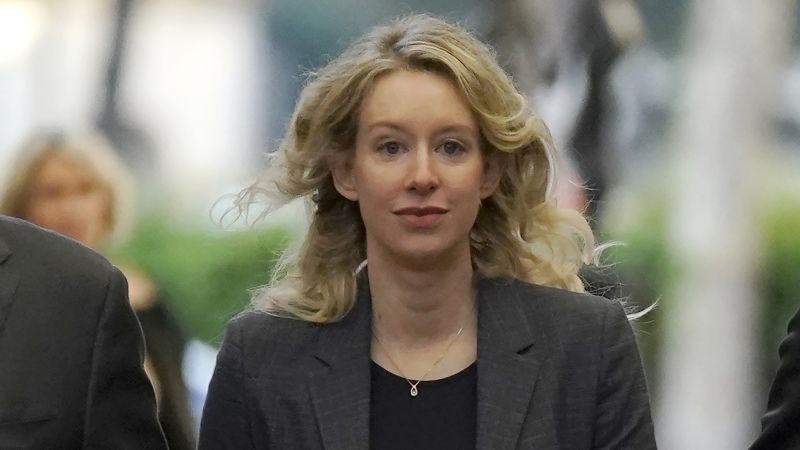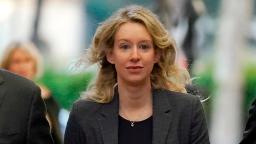

CNN
—
A federal judge has denied Elizabeth Holmes’ request for a new trial, according to court filings on Monday, paving the way for the founder of failed blood testing startup Theranos to be sentenced later this month.
The decision comes weeks after an October 17 hearing held in San Jose, during which Judge Edward Davila had Adam Rosendorff, one of the government’s key witnesses, take the stand again. The hearing was to address concerns from Holmes’ defense team, which claimed Rosendorff had shown up at her home after the trial concluded asking to speak with her and expressed regrets about his testimony.
At that hearing in the United States District Court for the Northern District of California, Rosendorff, a former Theranos lab director, reaffirmed the truthfulness of his testimony at Holmes’ trial and said that the government did not influence what he said.
In his decision on Monday, Davila denied all three of Holmes’ motions requesting a new trial. A sentencing hearing, previously scheduled for last month, is now set for November 18.
Holmes, once hailed as a tech industry icon for her company’s promises to test for a range of conditions with just a few drops of blood, was found guilty in January on four charges of defrauding investors. Ramesh “Sunny” Balwani, her ex-boyfriend and former COO at Theranos, was convicted in a separate trial in July. Both face up to 20 years in prison as well as a fine of $250,000 plus restitution for each count.
In September, Holmes’ defense team filed a motion asking for a new trial, after claiming that Rosendorff arrived at Holmes’ home on August 8. According to that court filing, Rosendorff did not interact with Holmes but did speak to her partner Billy Evans, who recounted the exchange in an email to Holmes’ lawyers shortly after.
In Evans’ email, he wrote that Rosendorff “said when he was called as a witness he tried to answer the questions honestly but that the prosecutors tried to make everybody look bad.” The former Theranos lab director also “said he felt like he had done something wrong,” Evans wrote.
Davila wrote in his order Monday that the court “finds that the statements Dr. Rosendorff made to Mr. Evans do not stand for any of the proposed meanings that Defendant would want and, even if they did, they would not be material to the issues” at trial.
“Accordingly, a new trial is not warranted based on the ‘newly discovered’ evidence of Dr. Rosendorff’s statements to Mr. Evans,” Davila wrote.
In a sworn declaration filed with the court on September 21, Rosendorff wrote that he stands by his testimony in the trials of Holmes and Balwani “in every respect.”
During the hearing last month, Holmes and Evans were present as Rosendorff was asked by a defense lawyer about his decision to visit Holmes’ home. He responded that in the weeks and months following Holmes’ conviction he “started to feel increasingly distressed and uncomfortable at the prospect that a young child, an infant child, would spend their formative years without a mother in their life.” (Holmes has one child with Evans.)
Rosendorff said that when he visited Holmes’ residence in August, he rang the doorbell and spoke briefly to Evans, who asked him to leave. He went to his car and started to drive away, he testified, but Evans motioned for him to roll down his window; he did, and they had a conversation, Rosendorff said, in which he “expressed sympathy for the rank and file employees at Theranos.”
When asked by the defense lawyer whether he had said the prosecution was trying to make everyone look bad, Rosendorff said that the prosecution was trying to paint “an angry picture of Elizabeth Holmes. To the extent other people looked bad it was because of their association with Elizabeth.”
He said he did not recall telling Evans that he felt he had done something wrong, as Evans had written in his email to Holmes’ lawyers after their interaction.
